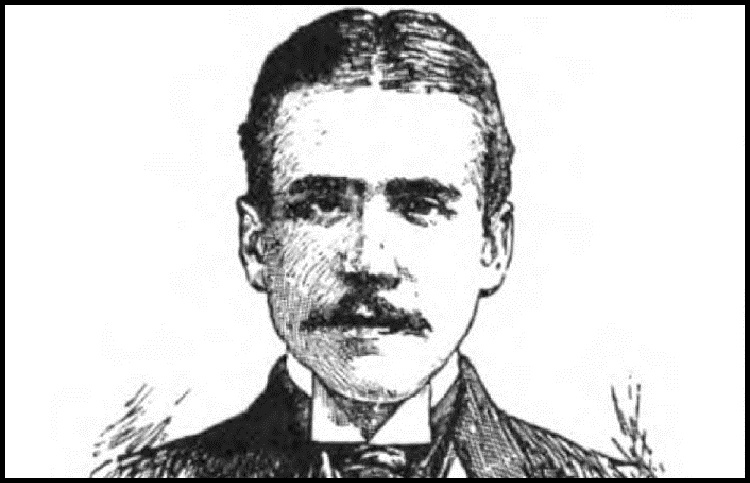Eduardo González
The life of American diplomat, historian and journalist Stephen Bonsal (1865-1951) was more related to Cuba than to Spain, as he not only covered, as New York Herald’s correspondent, the Spanish-American war that ended with the loss of the island in 1898, but had the honor of being the father of the last US ambassador in Havana until the triumph of the Castro revolution, Philip W. Bonsal.
However, what we are now interested in Bonsal happened in Spain, specifically during the period he served as secretary of the United States Embassy in Madrid, between October 1893 and June 1895, in which took the opportunity to take a few breaks of the country that took shape in July 1898 (a few months after Washington declared war on Madrid for the sinking of the battleship Maine), in the publication by the American magazine The Century Magazine of an article entitled Holy Week in Seville.
With an overloaded style and full of topics (as shown by the first words of the article: “The great bustard is winging his way over the city which Hercules built, they say, that all the world might wonder”), and of course addressed to the American reader, Bonsal begins his story with a description of the Procession of Palm Sunday: “Nothing more majestic and imposing can be imagined”.
In the processions of the afternoon of Palm Sunday, Bonsal witnessed an act of protest by the brothers against the stinginess of the City Council, which resulted in a delay of no less than four hours at the beginning of the processions. “The dark looks of the Señor Alcalde (sic) and the attending flock of aldermen and sherifiis were blacker even than the curious capirotes (sic)” says the diplomat and journalist.
After explaining with the topics about the “indolence” of the Andalusians (who proudly boast that they never exercise as bearers and leave the task to the “imported Gallegos, or Galicians”) and after describing the processions of Holy Thursday and the visits to the Tabernacles and to the offices celebrated in the Cathedral, Bonsal stops at La Madrugá, with the departure of the Brotherhoods of Silence and the Great Power, among others.
“It is after midnight, the morning of Good Friday, and there is not a single man, woman, or child in all Seville a-sleeping. It is as though some imperial edict had gone forth, and that they, in obedience to it, had come and assembled in their thousands in the great squares and public places, in the Street of the Serpents and the Plaza of San Francisco, to witness in decorous silence the strange, unusual sights that were to be revealed to them”, he writes.
With the Brotherhood of the Great Power, a “weird, ghostly procession” according to Bonsal, the image of the Christ of the Great Power -“the most popular and most often prayed to”- is taken, followed by an “army of penitents walk” that “are disguised, son that idle spectators may not know who the repentant sinners are, and conjecture as to what their sins may be”.
“Even if there is not enough money for bread, there is always money for the bulls”
In the description of the offices of Good Friday in the Cathedral, the diplomat gets the most literary: “Weary with their long vigils, their fasts, and their many visits to the sagrarios, the worshipers, in deathlike weariness of attitude, are crouching over the cold tombs of long-forgotten kings, with their eyes resting hopelessly on the altars and the shrines, where impenetrable darkness reigns”.
Suddenly, and in full poetic ecstasy, Bonsal relates “an incident, so strange, so striking, and so unforeseen, that it will be spoken of in Seville in the years that are to come”: the appearance of a shadow produced by “a great Cross out on the battlements of the fortress cathedral”, and that disappeared “as the moon rose higher and the clouds rolled between”. The crowds that attended “this sign of grace” understood that that cross “had not been placed there in vain”, and that that night, after ages of inactivity, it had fulfilled “its mission”.
The rest of the article, dedicated to Holy Saturday and Resurrection Sunday, is a succession of topics (“every one in Seville who is a good Christian will attend the Easter bullfight “, because “while there is a great lack of money in Seville to buy bread, there is always enough money forthcoming, even from the pauper’s treasury, to pay the way into the bull-ring”) among those who parade Don Juan Tenorio, the poet Marcial, Almanzor, Don Juan de Austria and Fernando VII and that concludes with a praise to the Andalusian dancers (“the Sevillans wear bright colors from the cradle to the grave”) and an intense “Ole, viva mi tierra! (Hole, long live our land!) —the land of María Santisima (sic)”.






